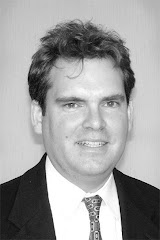
SIOUX CITY - The Daily Times Herald and La Prensa, an Iowa Spanish-language newspaper, inter-viewed U.S. Sen. John En-sign, a Nevada Republican, this week in Sioux City.
Ensign, chairman of the Republican Policy Commit-tee, delivered an American Future Fund lecture in Sioux City after visiting Blue Bunny ice cream in Le Mars and Trans Ova Genetics in Sioux Center. The senator is viewed by some in the party as an "ideas" leader, and his visit to northwest Iowa sparked much speculation about a possible presidential bid in 2012. Ensign has not announced such a move.
Daily Times Herald: On your way here from Le Mars and Sioux Center you went through farm fields and saw wind turbines that are sub-sidized by the federal gov-ernment. You've advocated free-market principles, keeping the government out of as much business as pos-sible in your view. What should the federal govern-ment's role be in Iowa agri-culture?
Senator Ensign: First of all, let's look at energy. We subsidize oil with our mili-tary. That is the bottom line. I think we subsidize oil to a great degree. So for a period of time to subsidize some of the alternative energies until they can become more competitive, I don't have a problem with that. If oil was truly a free market and we didn't have to use our mili-tary to subsidize it, then put everything on a level play-ing field.
But because we do subsi-dize that right now I have no problem subsidizing some of the renewables.
As far as farm subsidies, you have to remember I come from a state that gets no farm subsidies, even for our farmers that we have. We don't grow any of the crops that get that so I've voted against farm bills in the past because they don't benefit Nevadans and I rep-resent Nevada.
Daily Times Herald: (Joking) Just make flights cheaper from Omaha to Las Vegas.
Senator Ensign: (Laugh-ing) Well, we have a new airline that at least makes it reasonable for people to come Las Vegas called Alle-giant Air. I encourage peo-ple to check it out.
La Prensa: In 2007 you opposed the immigration reform bill. Your state is one with more immigrants. What are your thoughts on that issue for the Hispanic com-munity?
Senator Ensign: That bill itself was actually never voted on. That bill was pulled from the floor. What I believe should have hap-pened with that bill, if we would have taken the so-called amnesty, the green card, out of the bill so we could have proven that we were securing the borders, that we were sanctioning employers that were not following the law, and that the program was working, that for instance people who were here were getting signed up - we were doing background checks, elimi-nating people who were criminals. A certain per-centage are going to be criminals. We want them out of the country.
And then we also want to encourage people, for in-stance, with work visas to give them more time in this country that they learn Eng-lish, they learn it well, that they learn what it means to be an American, that they have a job with health insur-ance. Reward them for things that are good for America that are also good for the immigrants.
In six, seven, eight years down the road, once we've proven all those things work, then revisit the issue of green cards and citizen-ships and things like that.
The problem is in 1986 all of those reforms were prom-ised when they gave am-nesty but they never did the reforms. So let's prove to the American people that the reforms are working first and then we can talk about the green-card issue and things like that down the road.
Daily Times Herald: Senator, do you think the United States is less safe today than it was on January 20 of this year and what evi-dence would you have to support you answer.
Senator Ensign: I be-lieve that certainly we've put ourselves in a much more difficult position to keep us safe because we've taken away some of the tools that potentially could be used. Enhanced interroga-tion techniques without a doubt have kept us safer. We have stopped several terror-ist attacks against the United States using en-hanced interrogation tech-niques. We no longer have those tools available. So if we get a situation to prevent the next 9/11 and now we don't have those, could it potentially? It's potentially less safe because we don't have the tools that kept us safer in the past.





No comments:
Post a Comment